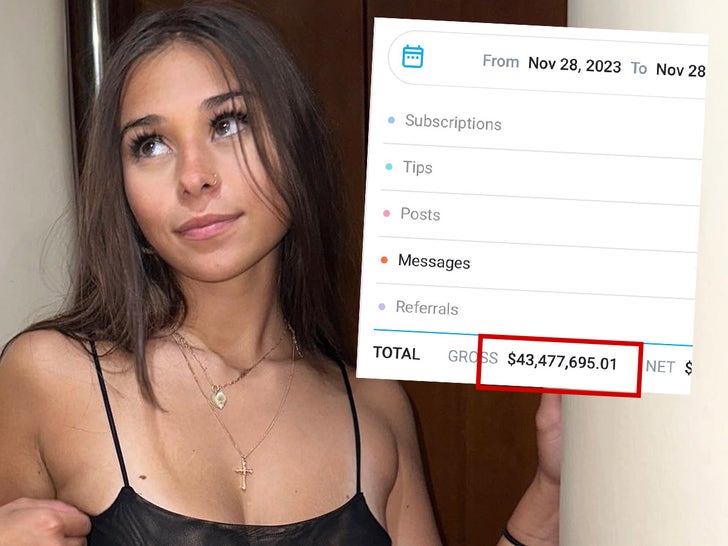Sophie Rain OnlyFans Leak: Fact Vs. Fiction
Has the digital age eroded our understanding of privacy? The unauthorized dissemination of private content online, often targeting women in the adult entertainment industry, highlights a disturbing trend. The case of Sophie Rain, an OnlyFans creator whose content was leaked in 2024, serves as a stark example of this escalating problem.
Rains situation underscores the vulnerabilities faced by online content creators, particularly those on platforms like OnlyFans, where the line between public persona and private life can become blurred. The leak of her exclusive content, intended for paying subscribers, ignited a firestorm of debate concerning digital privacy, consent, and the responsibility of platforms in protecting their users.
| Name: | Sophie Rain (This is a pseudonym used to protect the individual's privacy as much as possible. Verifying real names in these cases is often difficult and unreliable due to the nature of online platforms and the frequent use of stage names.) |
| Profession: | Online Content Creator (OnlyFans) |
| Known for: | Exclusive content for subscribers on OnlyFans. Subject of a major content leak in 2024, raising questions about online privacy and security. |
| Reference: | BBC News - OnlyFans: Why are so many people making money from it? (This link provides context on the OnlyFans platform and the broader issues creators face, though it does not specifically mention Sophie Rain.) |
The incident brought to light the inadequacy of current safeguards against such breaches. While platforms like OnlyFans implement some security measures, the sophistication and determination of those seeking to circumvent these protections often prove overwhelming. The OnlyFans lookup tool developed by Backchannel in response to the growing number of leaks is a testament to the ongoing struggle to combat this issue. This tool allows creators to check if their content has been compromised, offering a small measure of control in a situation often characterized by powerlessness.
The proliferation of leaked material on sites like GotAnyNudes, which boasts "daily free teen nudes" and content from "celebs, Twitch streamers and YouTubers," further complicates the situation. The ease with which such platforms distribute stolen content underscores the urgent need for stronger legal frameworks and more effective enforcement mechanisms.
The implications of the Sophie Rain leak extend beyond the individual. It raises fundamental questions about the ownership and control of digital content in an age where information spreads rapidly and uncontrollably. The very structure of platforms like OnlyFans, which relies on exclusive content behind a paywall, is challenged by the ease with which this exclusivity can be breached. The financial repercussions for creators are significant, as is the emotional toll of having intimate material exposed without consent.
The incident also ignited a flurry of conspiracy theories and online speculation. Determining the source of the leak and the motivations behind it often proves elusive, leaving creators and their audiences grappling with uncertainty and mistrust. The lack of transparency surrounding these events further exacerbates the sense of vulnerability felt by online creators.
The debate surrounding the Sophie Rain leak highlights the growing tension between freedom of expression online and the need for robust protections against exploitation and privacy violations. As the digital landscape continues to evolve, it becomes increasingly crucial to establish clear ethical guidelines and legal frameworks that safeguard the rights and well-being of all online participants.
This situation is a sobering reminder that digital security is an ongoing battle, requiring constant vigilance and innovation. The onus lies not only on individuals to protect themselves but also on platforms and lawmakers to create a safer and more equitable online environment. The case of Sophie Rain serves as a critical case study in the ongoing struggle to define and protect privacy in the digital age.
The proliferation of non-consensual pornography, commonly referred to as "revenge porn," is a disturbing trend amplified by online platforms. The ease with which explicit content can be shared and the difficulty in removing it once its online pose significant challenges for victims. The Sophie Rain case, while not explicitly labeled as revenge porn, highlights the vulnerability of individuals to having their private images and videos distributed without their consent.
The legal landscape surrounding these issues is complex and constantly evolving. While some jurisdictions have enacted laws specifically targeting revenge porn, enforcement remains a significant hurdle. The anonymity afforded by the internet often makes it difficult to identify perpetrators, and the cross-border nature of online activity complicates legal proceedings. The Sophie Rain leak underscores the need for international cooperation and harmonization of laws to address these challenges effectively.
Furthermore, the psychological impact of such leaks on victims can be devastating. The violation of privacy, the sense of shame and humiliation, and the fear of further dissemination can have long-lasting emotional and psychological consequences. Support services for victims of online harassment and abuse are crucial in helping them navigate the aftermath of such traumatic experiences.
The Sophie Rain case is not an isolated incident but rather a symptom of a broader societal problem. It highlights the need for a fundamental shift in attitudes towards online privacy and consent. Education and awareness campaigns are essential in promoting a culture of respect and responsibility online. By fostering a collective understanding of the potential harms of non-consensual sharing of intimate content, we can work towards creating a safer and more ethical digital environment for everyone.


